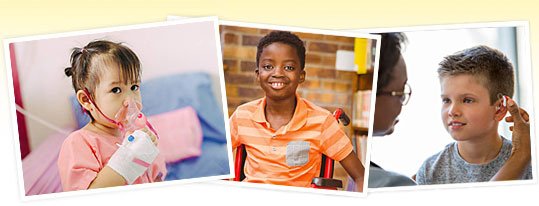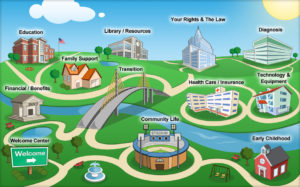Behavior and Social Supports for Students with Autism Spectrum Disorder
Prevent, Teach, Reinforce
Prevent, Teach, Reinforce (PTR) is a systematic, structured process for supporting students with challenging behavior. PTR is an excellent model approach for students with Autism Spectrum Disorder (ASD). It is largely aligned with the principles and procedures of applied behavior analysis (ABA). Among the ABA principles used by PTR, are functional behavior assessment (FBA) and reinforcement of desired alternative behaviors. Parents are an integral part of the PTR team and the development of behavior goals. Click HERE to learn more about PTR and its applications for students with ASD.
Creating Measurable Behavior Goals
The ABC’s (Addressing Behavioral Concerns) of IEPs develops data-driven, measurable IEP goals with a concentration on behavioral concerns and social skill needs. This aligns with the IEP process for students with autism as it is individualized for each student’s particular needs in the area of behavior and social skills. Educators and parents are taught to outline specific supports needed to make each student successful in the classroom and identify any accommodations, modifications and specialized instruction that may be needed to give them access to the general education curriculum and meet their IEP goals. The Functional Behavior Assessment and the Behavior Support plan are tools to identify function of behavior, specific student needs and a plan for teaching those skills. Linking these components together as a team assists students with ASD become successful in the classroom. Data collection procedures are also taught to continue to analyze student needs and progress throughout the school year. Professional development, school-based coaching and technical assistance is provide to assist teams in applying these skills for students.
PEERS: Social Skills
This social skills curriculum is intended for higher functioning students with Autism Spectrum Disorder, focusing on skills related to making and keeping friends and managing peer conflict and rejection. Lessons include having two-way conversations, entering and exiting conversations, electronic forms of communication, choosing appropriate friends, using humor appropriately, being a good sport, having successful get-togethers, managing arguments with friends, and handling teasing, physical bullying, and other forms of social rejection. PEERS teaches social skills using concrete rules and steps of social behavior and utilizes the Socratic method, role-play demonstrations, perspective-taking questions, rehearsal exercises, coaching with feedback, and homework assignments as teaching methods.
Lessons are taught daily in the classroom for 30-60 minutes at a time, 4-5 days per week, over a 16-week period. Recommended class size is between 7-10 students.
For more information, please contact Susan Veenema (susanv@udel.edu) and visit the PEERS website
School wide Positive Behavior Support (PBS)
DE-PBS is a school-wide, multi-tiered behavioral framework focused on establishing systems to support student behavior at various levels of intensity. This three-tiered approach is utilized to develop positive learning environments and prevent problem behaviors. Schools with a PBS framework, encourage positive student and staff behaviors and relationships through schoolwide behavioral expectations and the reinforcement of those expectations through explicit instruction and problem-solving processes. These processes are data-based and progress monitored to help school identify which students may need additional, small-group or individualized behavior and/or social-emotional interventions. The clear behavioral expectations emphasized throughout PBS systems give all students, including those with disabilities, and staff the structure and support for developing positive student behaviors and self-discipline. Within this framework, students in every grade and classroom, including students with disabilities participate fully in the DE-PBS programming within their school. Click HERE to visit the Delaware PBS website


 View the guide to services in Delaware
View the guide to services in Delaware